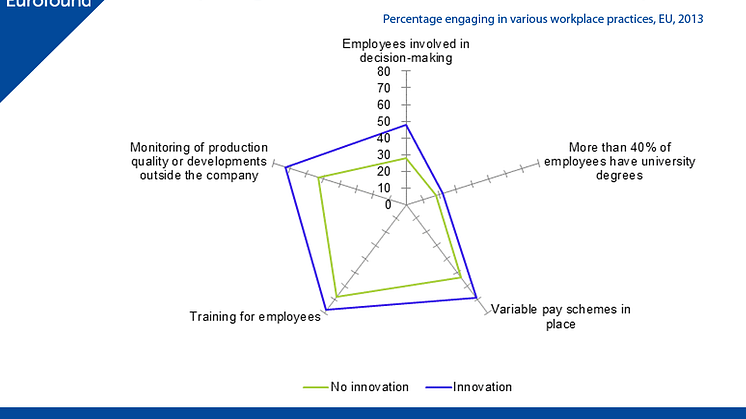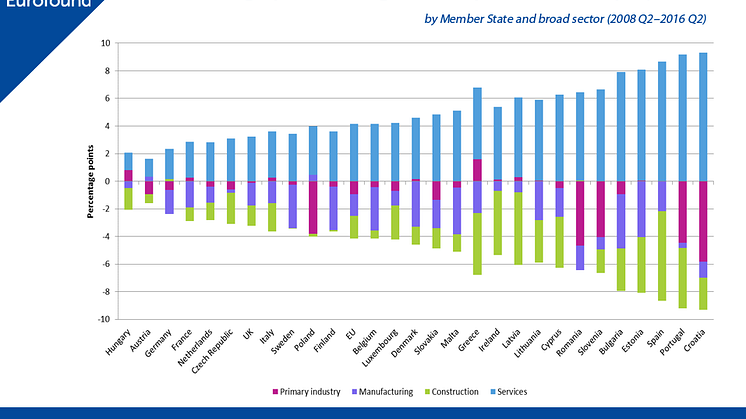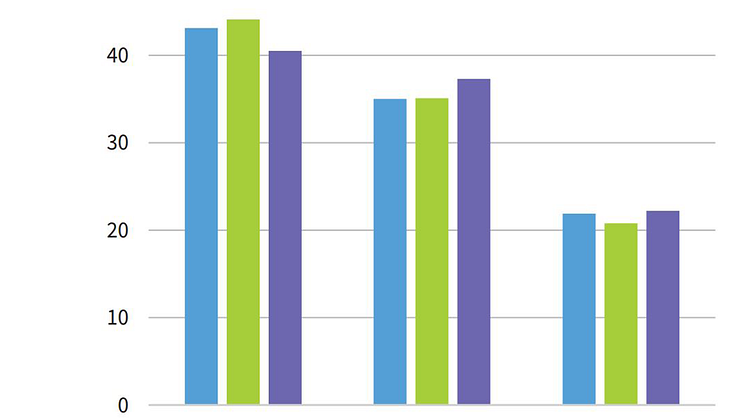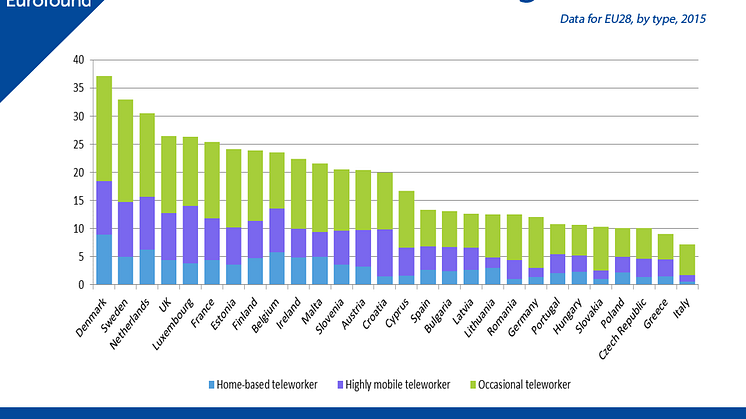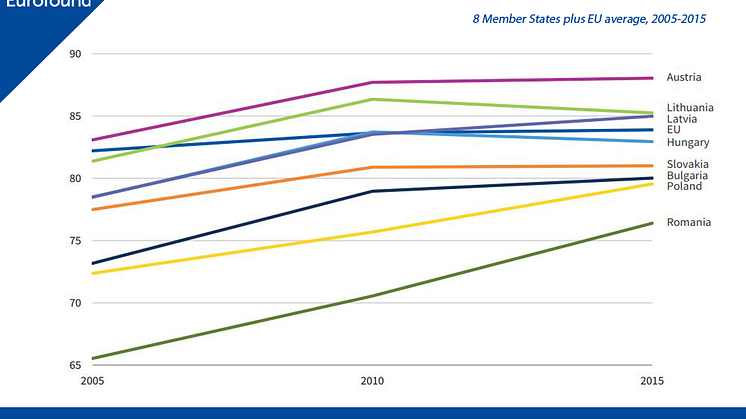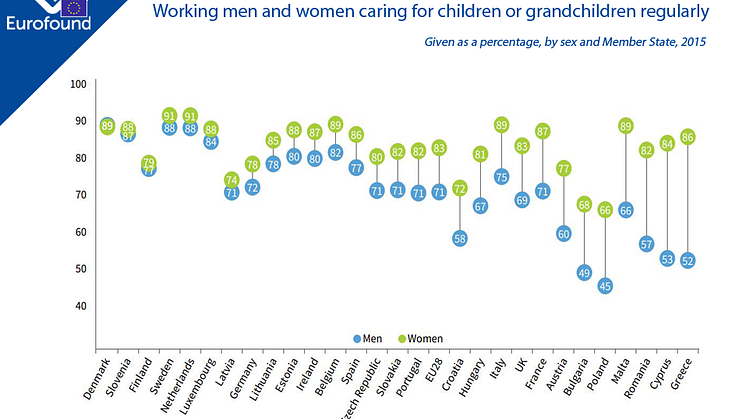
News -
Sharing caring
It is well known that women take more responsibility for the care of their children than men. According to the 2016 EQLS, 88% of mothers compared to 64% of fathers in the EU care for their children every day. These fathers estimate they give 21 hours a week to the care of their children, while the mothers dedicate 39 hours per week.
This disparity is duplicated among working parents and is one of the reasons why the working lives of women contrast with those of men – in terms of working time arrangements, occupational choices and pay. Separating the data by Member State suggests that the gender gap in care provision is highly influenced by social and cultural norms. The graph shows the percentage of working men and women caring for children or grandchildren regularly in the Member States, ordered by the size of gap – ranging from no gap in Denmark to a gap of 34 percentage points in Greece.
The need to reconcile work and care may extend over most of the course of a working life if it involves both the care of children and of dependent adults. The gender gap in childcare is wider at younger ages, while for adult care, it is particularly wide in the 50–64 age group, where a striking one-quarter of women in paid work (compared to 17% of men) report providing care at least once a week to an ill or disabled family member or friend.
- Read more about working conditions and sustainable work in Europe: Living and working in Europe 2017



